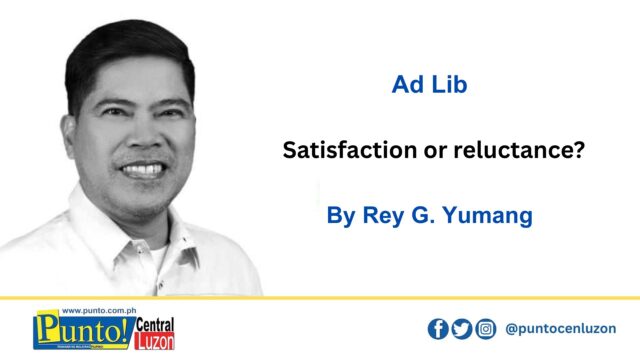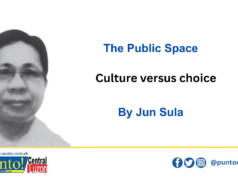THE RESULTS of the May midterm elections in Pampanga offer a complex and truly contradictory picture.
On one hand, the 12-0 victory of Vilma Caluag in the City of San Fernando is considered by many as a symbolic rejection of another Pineda candidate.
On the other hand, the landslide victory of the mother-and-son tandem of Lilia “Nanay” Pineda and Dennis “Delta” Pineda for the nth time, is yet another showing of an overwhelming support for the Pinedas.
These results have sparked debate not just about political choices—but also about the way we judge voters themselves.
Some political pundits have been quick to liken the Fernandinos with the Pasigueños, labelling them as intelligent and wise voters who clamor for new leadership, transparency and meaningful changes.
In contrast and maybe out of frustration, they dismiss the rest of the Kapampangans as “bobotantes.” Frankly, I find this a deeply unfair and problematic generalization because this double standard reflects a classist and urban-centric mindset that fails to understand the multi-faceted nuances behind voter behavior in rural areas.
Living in a more urbanized and economically active city, the Fernandinos obviously have greater access to information, are more exposed to alternative narratives, and are more likely to question dynastic power.
Caluag’s win is admittedly a hopeful sign—but one that should not be used to disparage others who made different choices.
Did the voters outside of San Fernando support the Pinedas out of blind loyalty, or from a sense of satisfaction and practical trust? After all, there is more than a grain of truth to the observation that for years, the Pinedas have maintained an active, strong and consistent presence on the ground.
Their quick responses in times of calamity, various forms of financial assistance, and social services that reach even the most remote barangays are more than and beyond than most politicians ever provide. For these voters, supporting them is a vote for continuity, not ignorance.
During our Leni-Kiko house-to-house campaign in 2022 and in my recent Kiko-Bam-Heidi-Luke-Teddy personal “crusade,” I have met and talked to a number of people who supported my national choices but still went for the Pinedas.
Their reason may be too simplistic or even short-term for some; but to them it is based on actual and verified experiences either of their own, or of people they know from their respective communities.
These are testimonies they have seen and witnessed for themselves, or have experienced themselves, and not from some press release or a video narrative posted only to hype their popularity during the campaign season.
How can we actually debunk these claims and convince voters they have other choices when they have always been assured of a continuity of all these programs?
When we criticize the Kapampangans outside San Fernando as “bobotantes,” we do not only undermine democracy. In fact, we also alienate the very same people we should be engaging in conversations about political awareness and reform. Change doesn’t happen by shaming voters—it happens by understanding them, listening to their needs, and offering credible alternatives.
The contradiction between the results in the City of San Fernando and the province of Pampanga also points to a deeper issue: real political change cannot be declared based on one city’s vote.
While there are sparks of reformist sentiment, especially in urban centers, they remain scattered and inconsistent across the province. The vote in San Fernando may be the beginning of a shift—but it is far from a revolution.
The election results in Pampanga tell a story not of ignorance, but of differing priorities: satisfaction in some areas, reluctance in others.
If we want a more informed and united electorate, we must first learn to speak respectfully to people across those divides.
The Fernandinos may have spoken already but have the rest of the Kapampangans really spoken? The answer may be yes, but the message is clearly mixed. As for those who hope for real change, the work has only just begun.





